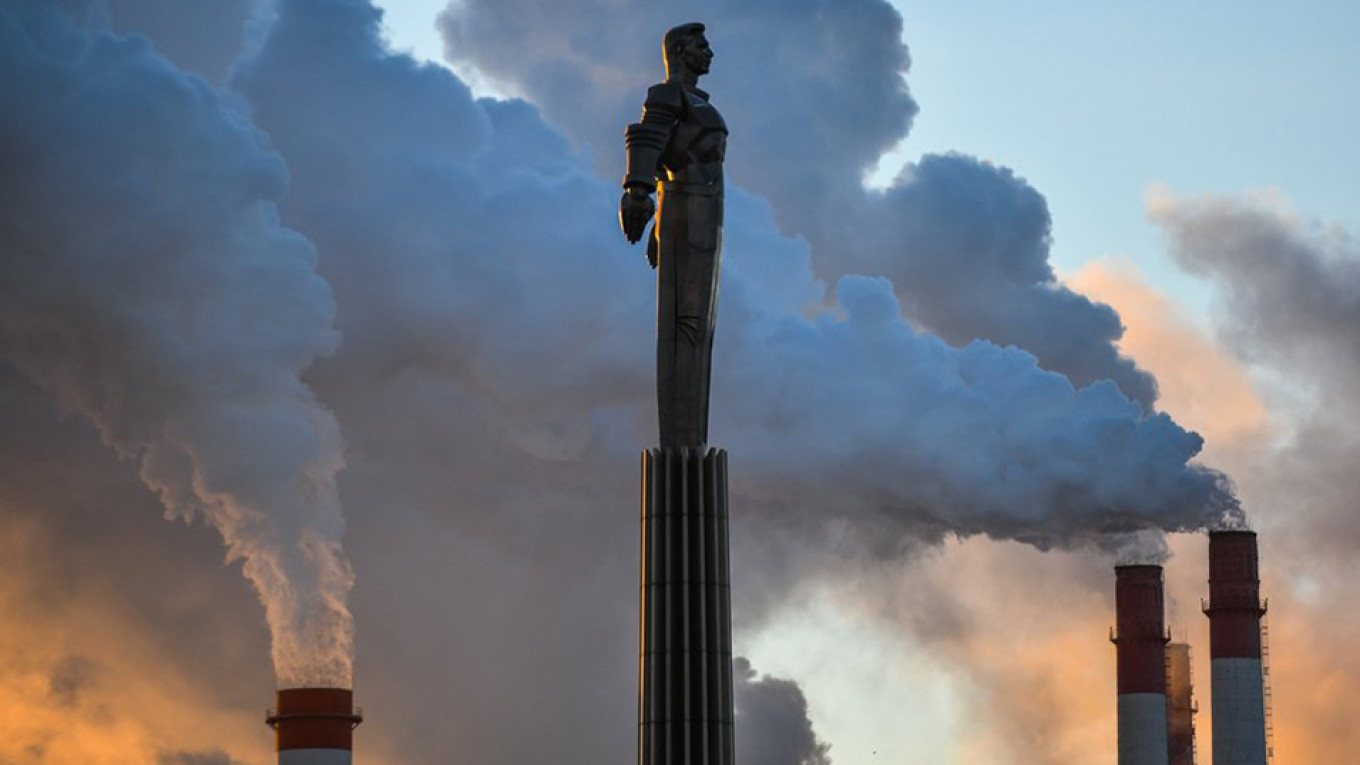
Moscow’s weather will feel like that of present-day Detroit while St. Petersburg’s will more closely resemble that of Sofia three decades from now, researchers warned.
A fifth of the world’s major cities will face “unknown” climate conditions by 2050 as rising temperatures heighten the risks of drought and flooding, according to climate scientists at The Crowther Lab. The scientists said their study, published in the journal PLOS ONE, was the first global analysis of the likely shifts in climate conditions in major cities as a result of global warming.
With annual temperature rises of three degrees Celsius, Moscow will have a similar climate to Detroit, St. Petersburg to Sofia and Samara to Bucharest by 2050, the study published Wednesday said.
Russia’s economy has been projected to benefit from a modest rise in global temperatures — which are expected to open navigation in the Arctic and allow for more economic activity in the winter. The country has allocated an estimated 1.55 trillion rubles ($22 billion) on a new environmental program to promote air pollution reduction, reforestation and recycling.
Across the northern hemisphere, many cities in 30 years’ time could resemble places that are over 1,000 kilometers further south toward the equator, said the latest study. The Crowther Lab projected conditions if current plans ratified by 185 countries under the Paris Agreement to cut climate-changing emissions go ahead.
In Europe, cities will warm by an average of about 2.5 degrees across the year, but summers and winters could be warmer. Under the study scenario, London’s climate in 2050 could be similar to Barcelona’s current climate, with Madrid feeling more like Marrakesh, Seattle more like San Francisco, and Tokyo more like Changsha in central China, it said.
Globally, temperatures are likely to be 2.4 degrees warmer on average — enough to kill nearly every coral reef and soar past targets set out in the Paris Agreement.
The Crowther Lab, based at ETH Zurich, a science and technology university, analyzed 520 cities across the world, including all capitals and most urban centers with populations of more than 1 million.
Reuters contributed reporting to this article.

Leave a Reply